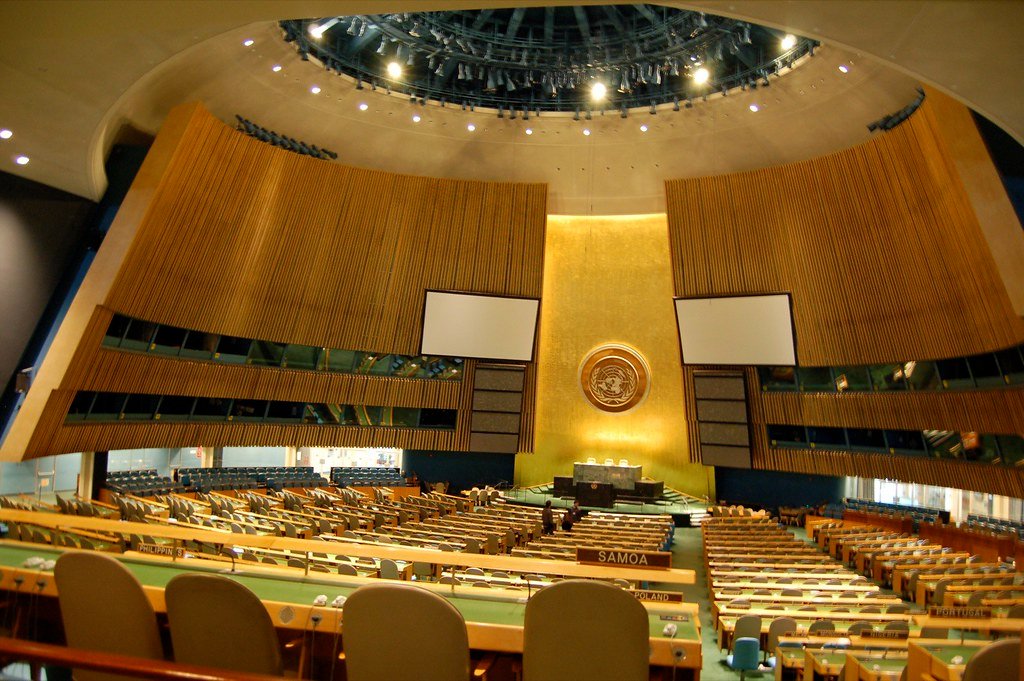Next week, global leaders will convene at the United Nations, marking a significant assembly shadowed by the geopolitical rifts predominantly caused by the ongoing war in Ukraine. As superpowers like Russia and China challenge the hegemony of the U.S. and Europe, a diplomatic tussle is evident, with each side attempting to woo the developing nations into their sphere of influence.
The conflict in Ukraine, persisting beyond its first year, remains central to this year’s U.N. discussions. In a significant move, Ukrainian President Volodymyr Zelenskiy will make a personal appearance, the first since the onset of the conflict. The decision underscores the urgency and significance Ukraine places on its position in the global diplomatic arena.
However, the global spotlight isn’t solely focused on the European conflict. The agenda also emphasizes concerns pertinent to the Global South. This shift reflects a strategic pivot by Western nations. Recognizing the growing significance of developing countries, they seek their support, especially in endeavors to isolate Russia due to its aggressive moves in Ukraine.
To address this, several meetings during the General Assembly are scheduled that highlight priorities of the developing regions, spanning Africa, Latin America, and Asia. Key areas include climate change, health, financing for development, and strategies to ensure the Sustainable Development Goals (SDGs) – a universally agreed-upon framework from 2015 – remain on course.
Richard Gowan, U.N. director of the International Crisis Group think tank, emphasizes the proactive role of the Global South this year, stating, “This is a year when the countries of the Global South have set the agenda.” He observes the astute diplomacy of non-Western nations, capitalizing on the understanding that both the U.S. and Russia seek their allegiance.
China’s Belt and Road Initiative vs. Western Aid
The situation in Ukraine is only a fragment of the broader geopolitical dynamics. Over the past decade, China’s Belt and Road Initiative has become a cornerstone of Beijing’s global strategy. Investing hundreds of billions in infrastructure development across various countries, China’s initiative, while instrumental in development, has also been criticized for burdening nations with immense debts.
To counteract China’s burgeoning influence, the U.S. and its allies have started pumping funds for development and climate aid, aimed primarily at the same developing nations.
However, in the diplomatic corridors, officials from major powers downplay the rivalry. The U.S. Ambassador to the United Nations, Linda Thomas-Greenfield, articulates that the U.N. meet serves as a platform for smaller nations to present their priorities. She denies that the global outreach is a power play. Echoing a similar sentiment, both China’s U.N. Ambassador Zhang Jun and Russia’s U.N. Ambassador Vassily Nebenzia dismissed the notion of a competition or any ulterior motives in their engagements.
Interestingly, only President Joe Biden will represent the permanent five members of the U.N. Security Council in top-level talks next week. This comes three years after the COVID-19 pandemic compelled leaders to opt for virtual messages at the U.N. General Assembly. Now, over 140 state and government heads, along with several ministers, will make in-person appearances.
Highlighting the significance of this annual meet, U.N. Secretary-General Antonio Guterres remarked, “It is a one-of-a-kind moment each year for leaders from every corner of the globe to not only assess the state of the world – but to act for the common good.” He stressed the various challenges facing the world today, from climate change and escalating conflicts to economic disparities and rapid technological upheavals.
Ukraine in the Spotlight
Ukrainian President Zelenskiy’s planned speech at the General Assembly and subsequent participation in a U.N. Security Council meeting on Ukraine, where he may share the table with Russian Foreign Minister Sergei Lavrov, has caught global attention. Nebenzia, Russia’s U.N. Ambassador, dismissively remarked that the planned council meeting might just be a “big show.”
Western diplomats are under pressure to balance their focus. While they must address Russian aggression in Ukraine, they also have to address global issues without appearing to be sidelining them. British U.N. Ambassador Barbara Woodward describes the Russian move in Ukraine as a blatant challenge to U.N. principles.
Yet, there are concerns. A senior European diplomat anonymously commented on the possibility that increasing geopolitical tensions might drive developing countries towards the BRICS group (Brazil, Russia, India, China, and South Africa). This bloc, especially with China at its helm, has recently expanded its membership, suggesting an aim to recalibrate the current world order.
An African diplomat, preferring anonymity, highlighted the U.N.’s inability to convince African youth of the merits of democracy over militarization. He indicated that if traditional western allies do not offer solid support, countries might lean towards BRICS.
Conclusion
As the world witnesses significant shifts in geopolitical dynamics, the forthcoming U.N. assembly will be crucial in determining future alliances and global strategies. It’s more than a gathering; it’s a reflection of our evolving world, where traditional powers must reevaluate their roles and strategies in a rapidly changing landscape.
Read More:
